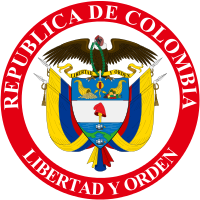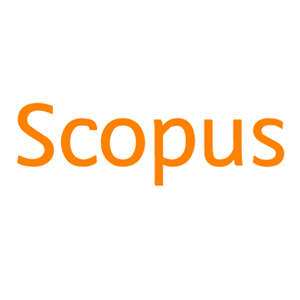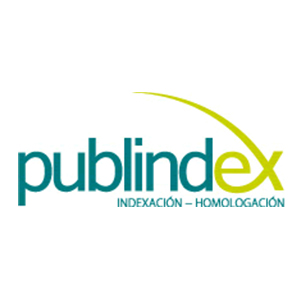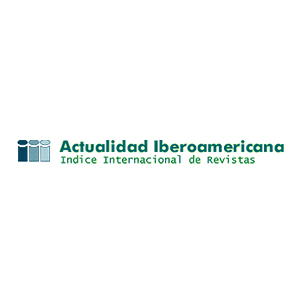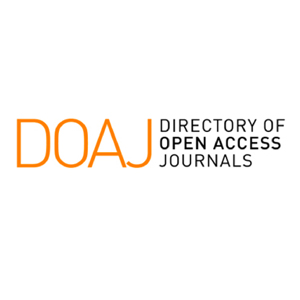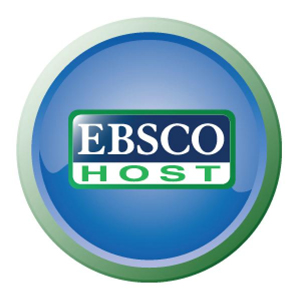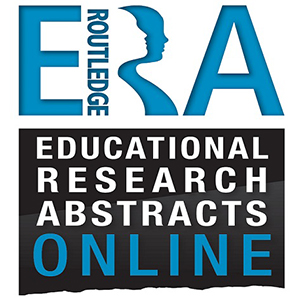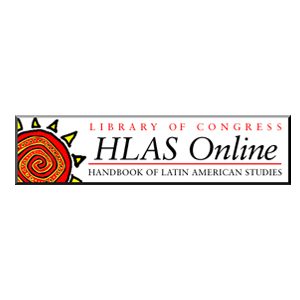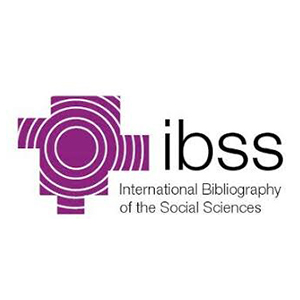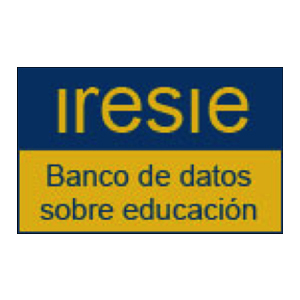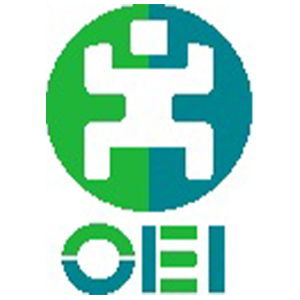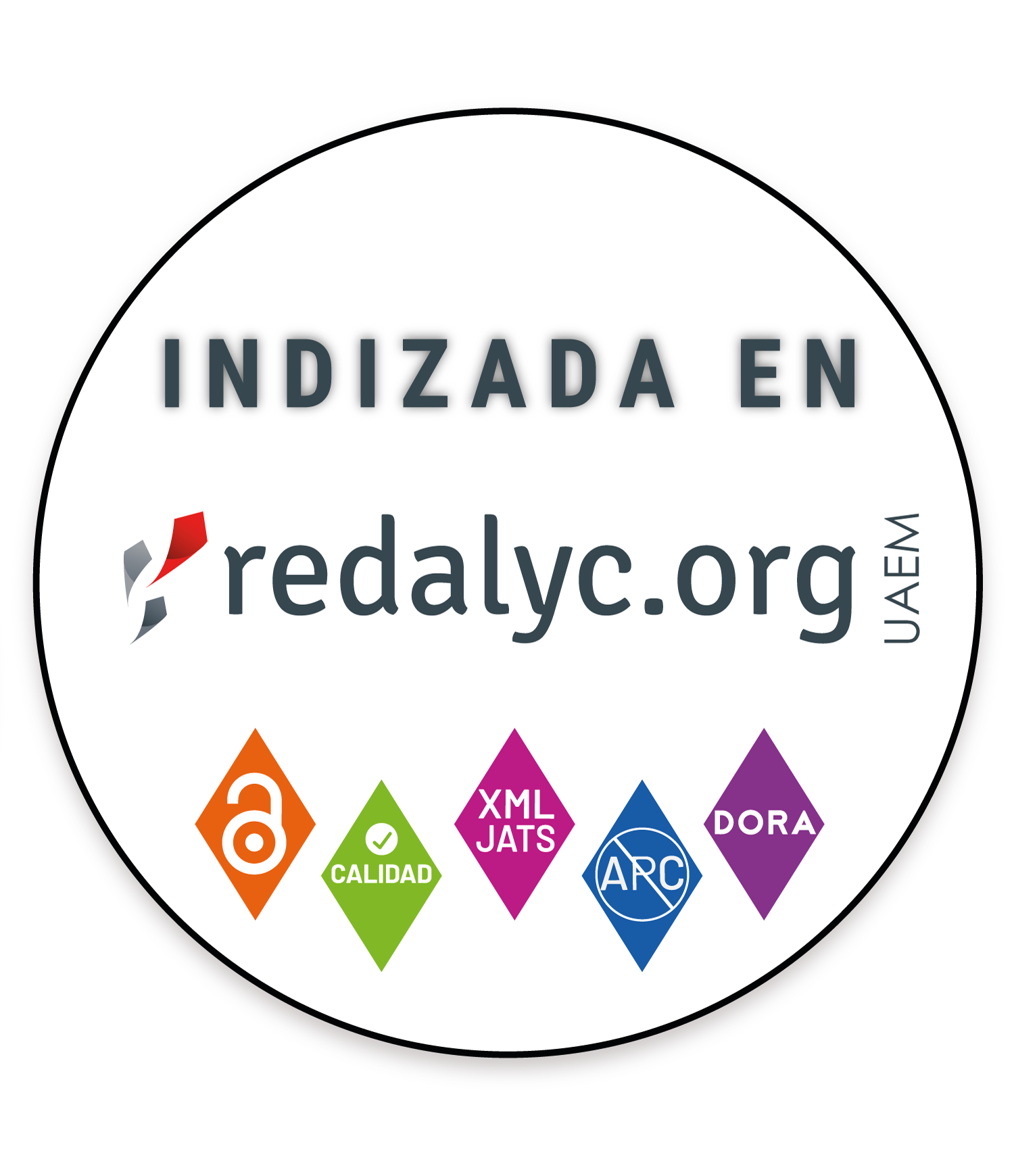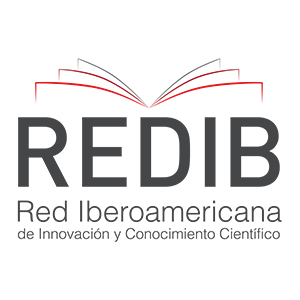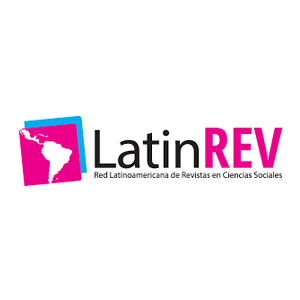La práctica reflexiva en el prácticum de los grados de educación. Revisión de la literatura
Reflective Practice in the Practicum of pre-Service Teachers. Review of the Literature
Prática reflexiva na prática dos professores de pré-serviço. Revisão da literatura
En este artículo de investigación se presenta una revisión de 52 estudios empíricos de carácter internacional, publicados en los últimos siete años (2014- 2020), que analizan de manera sistemática los resultados de las investigaciones en torno a la formación reflexiva en el prácticum de los grados de educación. Concretamente, se examinó el enfoque reflexivo de los diferentes trabajos y las estrategias que se vienen utilizando en los prácticum de diferentes facultades de educación en los últimos años. Los resultados evidencian que los enfoques reflexivos que orientan las propuestas se sitúan, generalmente, en un paradigma práctico y son de corte colaborativo; así pues, se siguen utilizando estrategias reflexivas tradicionales (diarios, portfolios, seminarios) en combinación con innovaciones menos conocidas (experiencias de microteaching, grabación y posterior análisis de situaciones pedagógicas, mentorazgo entre iguales). Finalmente, destacamos el estudio del uso de las TIC como línea de en auge en los últimos años. El análisis evidencia que la investigación empírica sobre el prácticum reflexivo en las dos últimas décadas se ha orientado a generar un abanico amplio de actividades para favorecer la reflexión, si bien acusamos la ausencia de investigación en torno a la incorporación de los tutores de escuela en las propuestas de trabajo reflexivo, así como a aquellas otras que propician procesos reflexivos a partir de propuestas de investigación por parte del estudiantado.
higher education, teaching practices, collaborative learning, teaching methods, reflective practice (en)
educação superior, estágio, aprendizagem colaborativa, estratégias de ensino (pt)
Allaire, S. (2015). The influence of collective asynchronous discourse elaborated online by pre-service teachers on their educational interventions in the classroom. Canadian journal of education, 38(2), 1-29. https://journals.sfu.ca/cje/index.php/cje-rce/article/view/1353
Beavers, E., Orange, A., y Kirkwood, D. (2017). Fostering critical and reflective thinking in an authentic learning situation. Journal of Early Childhood Teacher Education, 38(1), 3-18. doi:10.1177/002248719905000303.
Beck, C., y Kosnik, C. (2002). Associate teachers in preservice education: clarifying and enhancing their role. Journal of education for teaching, 26(3), 207-224. doi:10.1080/713676888
Bruno, A., y Dell’Aversana, G. (2018). Reflective practicum in higher education: the influence of the learning environment on the quality of learning. Assesment & evaluation in higher education, 43(3), 345-358. doi:10.1080/02602938.2017.1344823
Buendía, X., André, A. y Rosario, N. del. (2020). Factors Shaping efl Preser- vice Teachers’ Identity Configuration. Íkala, 25(3), 583-603. https://revistas.udea.edu.co/index.php/ikala/article/view/339118#:~:tex- t=The%20results%20identified%20participants’%20value,in%20 their%20identity%20formation%20process.
Carl, A., y Strydom, S. (2017). E-Portfolio as reflection tool during teaching practice: The interplay between contextual and dispositional variables. South African journal of education, 37(1). https://scholar. sun.ac.za/handle/10019.1/101518
Castellanos, M. T. , Flores, P. y Moreno, A. (2018). The reflection on practicum: A teaching experiment with Colombian students. Profesorado. Revista de Curriculum y Formacion de Profesorado, 22(1), pp. 413-439.
Cheng, T. (2020). Student Teachers’ Perception of Reflective Journal Writ- ing in Placement Practicum: Experience from a Hong Kong Institu- tion. Asia-Pacific Journal of Research in Early Childhood Education, 14(2), 27-51.https://eprints.lancs.ac.uk/id/eprint/151029/?tem- plate=browse
Chien, C. (2020). A Case Study of the Use of the Six Thinking Hats to Enhance the Reflective Practice of Student Teachers in Taiwan. Edu- cation, 3(13), 606-617. https://www.tandfonline.com/doi/abs/10.10 80/03004279.2020.1754875
Choy, S., Yim, S. y Sedhu, D. (2019). Pre-service Teachers’ Reflection on Reflective Practices: A Malaysian Perspective. Universal Journal of Educational Research, 7(12), 18-26. https://www.hrpub.org/down- load/20191130/UJERA3-19590938.pdf
Cid, A., Pérez, A., y Sarmiento, J. (2010). La tutoría en el practicum. Revisión de la literatura. Revista de Educación, 354, 127-154.http:// www.revistaeducacion.educacion.es/re354/re354_06.pdf
Clandinin, D., y Connelly, F. (2000). Narrative inquiry: experience and story in qualitative research. San Francisco: The Jossey-Bass education series.
Cortés, P., González, B. y Padua, D. (2020). Visiones del alumnado y el sentido del prácticum en educación primaria. Revista Interuniver- sitaria de Formación del Profesorado, 34(2), 275-298. https://doi.org/10.47553/rifop.v34i2.79613
Creswell, J. (1994). Research design qualitative and quantitative approaches. Thousand Oaks: Sage.
Cubero, M., Bascón, M. J. y Cubero-Pérez, R. (2020). “My tutor doesn’t say that”: The legitimized voices in dialogic reflection on teaching practices. Dialogic Pedagogy: An International Online Journal, 8, SA26-SA44.https://dpj.pitt.edu/ojs/dpj1/article/view/311
Cubero, R., Cubero, M. y Bascón, M. J. (2019). The reflective practicum in the process of becoming a teacher: The tutor’s discursive support. Education Sciences, 9(2), pp. 96. https://www.mdpi.com/2227¯7102/9/2/96
Cushion, C. (2016). Reflections and reflective practice discourses in coaching: a critical analysis. Sport, Education and Society, 23(1), 82-94. doi: 10.1080/13573322.2016.1142961
Deocampo, M. (2020). Issues and Challenges of English Language Teach- er-Trainees’ Teaching Practicum Performance: Looking Back and Go- ing Forward. Learn Journal: Language Education and Acquisition Re- search Network, 13(2), 486-503. https://eric.ed.gov/?id=EJ1258795
Domingo, A. (2013). Práctica reflexiva para docentes. De la reflexión oca- sional a la reflexión metodológica. Publicia.
Eby, L., McManus, S., Simon, S. y Russel, J. (2000). The Proteges Perspec- tive Regarding Negative Mentoring Experiences: The Development of a Taxonomy. Journal of Vocational Behavior, 57(1), 1-21. DOI: 10.1006/jvbe.1999.1726
Eksi, G. y Güngör, M. (2018). Exploring the Use of Narratives to Understand Pre-service Teachers’ Practicum Experiences from a Sociocultural Perspective. Australian Journal of Teacher Education, 43(4), 159-174. DOI:10.14221/ajte.2018v43n4.9
Foong, L., Nor, M. y Nolan, A. (2018). Individual and Collective Reflection: Deepening Early Childhood Pre-service Teachers’ Reflective Thinking During Practicum. Australasian Journal of Early Childhood, 43(1), 43-51. DOI: 10.1080/02619760500093354
Gan, Z. y Lee, F. (2015). Understanding esl Student Teachers’ Learning of Classroom Practices in the Practicum: A Case Study in Hong Kong. The Asia-Pacific Education Researcher, 25(2). DOI:10.1007/s40299- 015-0258-x.
Gazi, Z., Aksal, F., Öznacar, B. y Daǧlı, G. (2015). Impact of Prospective Teachers’ Self-control and Knowledge Management in Compiling a Reflective Portfolio. Hacettepe University Journal of Education, 30(3), 60-72. https://bit.ly/3SNePoE
Gelfuso, A. y Dennis, D. (2014). Getting Reflection off the Page: The Challenges of Developing Support Structures for Pre-service Teach- er Reflection. Teaching and Teacher Education, (38), 1-11. DOI: 10.1016/j.tate.2013.10.012
Gungor, M. (2016). Turkish Pre-service Teachers’ Reflective Practices in Teaching English to Young Learners. Australian Journal of Teacher Ed- ucation, 41(2). DOI:10.14221/ajte.2016v41n2.9
Gutiérrez, M., Adasme, M. y Westmacott, A. (2019). Collaborative Reflec- tive Practice: Its Influence on Preservice efl Teachers’ Emerging Pro- fessional Identities. Iranian Journal of Language Teaching Research, 7(3), 53-70. https://files.eric.ed.gov/fulltext/EJ1230321.pdf
Iqbal, M. y Jumani, S. (2015). Professional Reflection a Cradle of Student Teacher’s Professional Development. Mediterranean Journal of Social Sciences, 6(3), 376-376. https://www.mcser.org/journal/index.php/ mjss/article/view/6419
Jay, J. y Johnson, K. (2002). Capturing Complexity: A Typology of Reflec- tive Practice for Teacher Education. Teaching and Teacher Education, 18(1), 73-85. https://www.sciencedirect.com/science/article/abs/pii/ S0742051X01000518
Jones, M. y Gallen, A. (2015). Peer Observation, Feedback and Reflec- tion for Development of Practice in Synchronous Online Teaching. Innovations in Education and Teaching International, 53(6), 616-626. DOI:10.1080/13562510802334871
Jones, M. y Ryan, J. (2014). Learning in the Practicum: Engaging Pre-ser- vice Teachers in Reflective Practice in the Online Space. Asia-Pacific Journal of Teacher Education, 42(2), 132-146. DOI:10.1080/135986 6X.2014.892058
Karsenti, T., Dumouchel, G. y Collin, S. (2014). The E-portfolio as Support for the Professional Development of Preservice Teachers: A Theoret- ical and Practical Overview. International Journal of Computers and Technology, 12(5), 3487-3495. DOI:10.24297/ijct.v12i5.2919
Kazazoǧlu, S. y Demirel, E. (2015). Reflective Practicum Class: Some- body’s Watching You. The Turkish Online Journal of Educational Technology, (special issue), 425-429. https://files.eric.ed.gov/fulltext/ ED610413.pdf
Kelchtermans, G. (2009). Who I Am in How I Teach Is the Message: Self-Un- derstanding, Vulnerability and Reflection. Teachers and Teaching:Theory and Practice, 15(2), 257-272. https://www.researchgate.net/publication/233126554_Who_I_am_in_how_I_teach_is_the_mes- sage_Self¯understanding_vulnerability_and_reflection
Kilgo, C., Sheets, J. y Pascarella, E. (2015). The Link between High-impact Practices and Student Learning: Some Longitudinal Evidence. Higher Education, 69(4), 509-525. DOI:10.1007/s10734-014-9788-z
Körkkö, M. (2019). Towards Meaningful Reflection and a Holistic Ap- proach: Creating a Reflection Framework in Teacher Education. Scandinavian Journal of Educational Research, 65(2), 258-275. DOI: 10.1080/00313831.2019.1676306
Körkkö, M., Morales, S. y Kyrö-Ämmälä, O. (2019). Using a Video App as a Tool for Reflective Practice. Educational Research, 61(1), 22-37. https://www.tandfonline.com/doi/abs/10.1080/00131881.2018.1562954?- journalCode=rere20
Lambe, J. (2011). Developing Pre-service Teachers’ Reflective Capaci- ty through Engagement with Classroom-based Research. Reflective Practice: International and Multidisciplinary Perspectives, 12(1), 87- 100. DOI:10.1080/14623943.2011.541098
Loaiza-Zuluaga, Y., Taborda-Chaurra, J. y Ruiz-Ortega, F. (2020). La pe- dagogía: una mirada de estudiantes y profesores de programas de li- cenciatura. Revista Colombiana de Educación, 1(79), 13-38. https:// revistas.pedagogica.edu.co/index.php/RCE/article/view/8084
López- Noguero, F. (2002). El análisis de contenido como método de in- vestigación. En-clave Pedagógica, (4), 167-179. http://rabida.uhu.es/dspace/bitstream/handle/10272/1912/b15150434.pdf
Mendes, R. y Miskulin, R. (2017). Content Analysis as a Methodology. Cader- nos de Pesquisa, 47(165), 1044-1066. DOI:10.1590/198053143988
Merc, A. (2015). Microteaching Experience in Distance English Language Teacher Training: A Case Study. Journal of Educators Online, 13(2), 1-34. DOI:10.9743/JEO.2015.2.7
Moral, C., Ritacco, M. y Morales, J. (2021). Comprobando la eficacia de materiales reflexivos sobre competencias profesionales docentes. Un estudio de investigación-acción. Revista Practicum, 6(1), 26-43. https://revistas.uma.es/index.php/iop/article/view/10230
Morley, C. (2007). Teaching Critical Practice: Resisting Structural Dom- ination through Critical Reflection. Social Work Education, 27(4), 407-421. DOI:10.1080/02615470701379925
Mosley, M., Taylor, L. y Khan, S. (2017). Dialogue in the Support of Learn- ing to Teach: A Case Study of a Mentor/Mentee Pair in a Teacher Education Programme. Teaching Education, 28(4), 406-420. DOI: 10.1080/10476210.2017.1309016
Nguyen, H. y Ngo, N. (2018). Learning to Reflect Through Peer Mentoring in a Tesol Practicum. elt Journal, 72(2), 187-198. DOI:10.1093/elt/ ccx053
Oner, D. y Adadan, E. (2016). Are Integrated Portfolio Systems the An- swer? An Evaluation of a Web-based Portfolio System to Improve Preservice Teachers’ Reflective Thinking Skills. Journal of Comput- ing in Higher Education, 28(2), 236-260. DOI:10.1007/s12528-016- 9108-y
Pascual, C. y Molina, M. (2020). Evaluar para aprender en el prácticum: una propuesta de evaluación formativa y compartida durante la formación inicial del profesorado. Publicaciones, 50(1), 183-206. DOI:10.30827/publicaciones.v50i1.15959
Raposo, M., Quadros, P., Martínez, E., Pereira, A. y Tellado, F. (2020). Uti- lización de tic para la innovación en el prácticum. Revista Practicum, 5(1), 22-36. https://revistas.uma.es/index.php/iop/article/view/9814
Ratminingsih, N., Artini, L. y Padmadewi, N. (2017). Incorporating Self and Peer Assessment in Reflective Teaching Practices. International Jour- nal of Instruction, 10(4), 165-184. https://eric.ed.gov/?id=EJ1155599
Rees, C., Pardo, R. y Parker, J. (2012). Steps to Opening Scientific Inqui- ry: Pre-service Teachers’ Practicum Experiences with a New Support Framework. Journal of Science Teacher Education, (24), 475-496. DOI:10.1007/s10972-012-9315-y
Russell, T. (2017). A Teacher Educator’s Lessons Learned from Reflective Practice. European Journal of Teacher Education, 41(1), 4-14. DOI:1 0.1080/02619768.2017.1395852
Ryan, E. y Ryan, M. (2012). Theorizing a Model for Teaching and Assessing Reflective Learning in Higher Education. Higher Education Research and Development, 32(2), 244-257. DOI:10.1080/072943 60.2012.661704
Saiz, Á. y Ceballos, N. (2019). El prácticum de magisterio a examen: reflexiones de un grupo de estudiantes de la Universidad de Cantabria. Revista iberoamericana de Educación Superior, 10(27), 136-150. ht- tps://doi.org/10.22201/iisue.20072872e.2019.27.344
Saiz, Á. y Susinos, T. (2017a). Los seminarios colaborativos en un prácti- cum reflexivo de maestros. Análisis de una experiencia en la univer- sidad de Cantabria (España). Perspectiva Educacional, 56(3), 3-24. https://dialnet.unirioja.es/servlet/articulo?codigo=6153547
Saiz, Á. y Susinos, T. (2017b). Problemas pedagógicos para un prácticum reflexivo de maestros. Revista Complutense de Educación, 28(4), 993-1008. DOI:10.5209/RCED.50924
Saiz, Á. y Susinos, T. (2018). El prácticum o cómo aprender a través de la reflexión colaborativa. El caso del problema de Elena. Profesorado.Revista de Currículum y Formación del Profesorado, 22(1), 393-411. https://repositorio.unican.es/xmlui/handle/10902/16217
Schön, D. (1998). El profesional reflexivo. Cómo piensan los profesionales cuando actúan. Paidós.
Sorensen, P. (2014). Collaboration, Dialogue and Expansive Learning:
The Use of Paired and Multiple Placements in the School Practicum. Teaching and Teacher Education, (44), 128-137. DOI: 10.1016/j. tate.2014.08.010
Soto, E., Serván, M. y Caparrós, R. (2016). Learning to Teach with Les- son Study. International Journal for Lesson and Learning Studies, 5(2), 116-129. DOI: 10.1108/20468251211224163
Tavil, Z. y Güngör, M. (2016). A Sociocultural Perspective on the Devel- opment of Turkish Pre-service Teachers’ Competences and Qualifica- tions. Pedagogy, Culture & Society, 25(2), 263-277. DOI:10.1080/1 4681366.2016.1252788
Tejada, J., Carvalho, M. y Ruiz, C. (2017). El prácticum en la formación de maestros: percepciones de los protagonistas. Magis. Revista In- ternacional de Investigación en Educación, 9(19), 91-114. DOI: 10.11144/Javeriana.m9-19.pfmp
Thompson, N. y Pascal, J. (2012). Developing Critically Reflective Prac- tice. Reflective Practice, 13(2), 311-325. DOI:10.1080/14623943.2 012.657795
Ulusoy, M. (2016). Field Experiences in Teacher Education: The Percep- tions and Qualities of Written Reflections. Teaching in Higher Educa- tion, 21(5), 532-544. DOI:10.1080/13562517.2016.1160215
Ulvik, M. (2014). Student-teachers Doing Action Research in their Practi- cum: Why and How? Educational Action Research, 22(4), 518-533. DOI:10.1080/09650792.2014.918901
Vassilaki, E. (2017). Reflective Writing, Reflecting on Identities: The Con- struction of Writer Identity in Student Teachers’ Reflections. Linguis- tics and Education, (42), 43-52. DOI: 10.1016/j.linged.2017.08.001
Williams, J. y Grierson, A. (2016). Facilitating Professional Development During International Practicum: Understanding our Work as Teach- er Educators through Critical Incidents. Studying Teacher Education, 12(1), 55-69. DOI:10.1080/1359866X.2016.1199774
Wong, A. (2016). Considering Reflection from the Student Perspective in Higher Education. Sage Open, 6(1), 1-9. DOI:10.1177/2158244016638706
Yalcin, F. (2019). Reflection in Pre-service Teacher Education: Exploring the Nature of Four efl Pre-service Teachers’ Reflections. Reflective Practice, 20(1), 111-124. https://www.tandfonline.com/doi/ abs/10.1080/14623943.2018.1564652?journalCode=crep20
̇̇
Yüksel, I. y Başaran, B. (2020). Reflective Peer Feedback in the Practicum:Qualitative and Quantitative Practices. Turkish Online Journal of Qualitative Inquiry, 11(1), 85-109. https://www.tojqi.net/index.php/ journal/article/view/8
Yung, K. (2020). Becoming a Teacher Educator through Being a Student Teacher: An Autoethnography in the Practicum. Journal of Educa- tion for Teaching, 46(2), 248-250. https://www.tandfonline.com/doi/ abs/10.1080/02607476.2020.1724655?journalCode=cjet20
Yunus, W. (2020). Understanding Malaysian esl Pre-service Teachers’ Be- liefs about Teaching and Learning through Metaphors. Studies in English Language and Education, 7(2), 347-361. http://jurnal.unsyiah. ac.id/SiELE/article/view/16654
Zeichner, K. (2005). Los profesores como profesionales reflexivos y la democratización de la reforma escolar. Profesión Docente, (25), 74-85.
Zhan, Y. y Wan, Z. (2016). Appreciated but Constrained: Reflective Practice of Student Teachers in Learning Communities in a Confucian Heritage Culture. Teaching in Higher Education, 21(6), 669-685. DO I:10.1080/13562517.2016.1183622
APA
ACM
ACS
ABNT
Chicago
Harvard
IEEE
MLA
Turabian
Vancouver
Descargar cita
Citaciones

Métricas PlumX
Visitas
Descargas
Recibido: 4 de marzo de 2021; Aceptado: 20 de enero de 2022
Resumen
En este artículo de investigación se presenta una revisión de 52 estudios empíricos de carácter internacional, publicados en los últimos siete años (20142020), que analizan de manera sistemática los resultados de las investigaciones en torno a la formación reflexiva en el prácticum de los grados de educación Concretamente, se examinó el enfoque reflexivo de los diferentes trabajos y las estrategias que se vienen utilizando en los prácticum de diferentes facultades de educación en los últimos años. Los resultados evidencian que los enfoques reflexivos que orientan las propuestas se sitúan, generalmente, en un paradigma práctico y son de corte colaborativo; así pues, se siguen utilizando estrategias reflexivas tradicionales (diarios, portfolios, seminarios) en combinación con innovaciones menos conocidas (experiencias de microteaching, grabación y posterior análisis de situaciones pedagógicas, mentorazgo entre iguales). Finalmente, destacamos el estudio del uso de las TIC como línea de en auge en los últimos años. E análisis evidencia que la investigación empírica sobre el prácticum reflexivo en las dos últimas décadas se ha orientado a generar un abanico amplio de actividades para favorecer la reflexión, si bien acusamos la ausencia de investigación en torno a la incorporación de los tutores de escuela en las propuestas de trabajo reflexivo, así como a aquellas otras que propician procesos reflexivos a partir de propuestas de investigación por parte del estudiantado.
Palabras clave:
educación superior, prácticum, aprendizaje colaborativo, estrategias de enseñanza, práctica reflexiva.Abstract
In this research paper, a review of 52 international empirical studies published in the last seven years (2014-2020) is presented, which systematically analyzes the results of research on reflective training in pre-service teachers' practicum. Specifically, we have examined the reflective approach of the different works and the strategies to promote reflection that have been used in the practicums of different education faculties in recent years. The results show that reflective approaches guide the proposals while being situated in a practical paradigm, as well as traditional reflective strategies (diaries, portfolios, seminars) that continue to be used in combination with less known innovations (micro-teaching experiences, recording, and subsequent analysis of pedagogical situations, peer mentoring). Finally, we highlight the study of the use of ICTS as a line of growth in recent years. The analysis shows that empirical research on reflective practice in the last two decades has been oriented towards generating a wide range of activities to favor reflection, although we note the absence of research on the incorporation of school tutors in reflective work proposals, as well as those others that benefits reflective processes based on research proposals by students.
Keywords:
higher education, teaching practices, collaborative learning, teaching methods, reflective practice.Resumo
Neste artigo da pesquisa apresentamos uma revisão de 52 estudos empíricos internacionais, publicados nos últimos sete anos (2014-2020), que analisam sistematicamente os resultados da investigação sobre a formação reflexiva na prática dos professores de pré-serviço. Concretamente, examinámos a abordagem reflexiva das diferentes obras e as estratégias que têm sido utilizadas nas práticas das diferentes faculdades nos últimos anos. Os resultados mostram que as abordagens reflexivas que orientam as propostas se situam geralmente num paradigma prático e são de natureza colaborativa; as estratégias reflexivas tradicionais (diários, portfólios, seminários) continuam a ser utilizadas em combinação com as inovações menos conhecidas (experiências de microensi-no, registo e posterior análise de situações pedagógicas, mentoria de pares); finalmente, destacamos o estudo da utilização das TIC como linha de crescimento nos últimos anos. A análise mostra que a investigação empírica sobre a prática reflexiva nas últimas duas décadas tem sido orientada no sentido de gerar um vasto leque de actividades que favoreçam a reflexão, embora se note a ausência de investigação sobre a incorporação de tutores escolares em propostas de trabalho reflexivo, bem como de outras que favoreçam processos reflexivos baseados em propostas de investigação dos alunos.
Palavras-chave:
educação superior, estágio, aprendizagem colaborativa, estratégias de ensino.Introducción
A principios de este siglo, la universidad española se vio inmersa en un proceso de reforma hacia el Espacio Europeo de Educación Superior (EEES) que dio lugar a cambios significativos en los procesos de enseñanza-aprendizaje dirigidos a aumentar la autonomía del alumnado y a situarlo en el centro de la acción formativa. En el caso de las facultades de educación, además, se aumentó considerablemente el tiempo destinado al prácticum.
A pesar de algunos desajustes y riesgos, el planteamiento de cambio del EEES ha representado una oportunidad para revisar la formación inicial de maestros a partir de una consideración actualizada de su sentido y finalidad. Un ámbito de revisión, coherente con el preconizado objetivo de "aprender a aprender", se orienta hacia la necesidad de plantear modalidades de trabajo reflexivas que capaciten al alumnado para actuar y decidir en contextos educativos habitados por la incertidumbre.
En este artículo abordamos uno de los aspectos que las investigaciones señalan fundamental en los procesos de formación inicial de docentes: el prácticum (Beck y Kosnik, 2002; Cortés et al., 2020; Kilgo et al., 2015; Moral et al., 2021; Sorensen, 2014). De manera más concreta, el objetivo de este trabajo es recoger, sistematizar y reflexionar acerca de los hallazgos de la investigación empírica sobre la formación reflexiva en el prácticum, de modo que algunas propuestas puedan considerarse en los planes de estudio de las titulaciones de magisterio.
La literatura actual sobre la formación inicial de maestros recalca recurrentemente la necesidad de formular propuestas educativas de prácticum bajo modelos reflexivos (Beavers et al., 2017; Wong, 2016; Zeichner, 2005; Bruno y Dell'Aversana, 2018; Loaiza-Zuluaga et al., 2020). Sin embargo, tratar de conceptualizar el término de práctica reflexiva es una tarea dificultosa, pues no todas las iniciativas comparten la misma naturaleza. Asumimos, como punto de partida, que el movimiento de práctica reflexiva designa aquellas iniciativas de formación docente que reconocen la riqueza de las prácticas de los buenos maestros y la capacidad de estos para tomar decisiones sobre su trabajo (Schón, 1998). Así, la reflexión constituye un proceso de transformar la experiencia en aprendizaje (Bruno y Dell'Aversana, 2018) y el conocimiento práctico (Clandinin y Connelly, 2000) se convierte en el foco principal de reflexión.
El autor más representativo es Donald Schón (1998), cuyas obras siguen considerándose como grandes referentes a la hora de comprender estos conceptos. Este autor acuñó el término de conocimiento en la acción a aquellas acciones que desarrollamos de forma espontánea durante la práctica, sin tener que pensar sobre ellas durante su ejecución. Este conocimiento de la práctica es inicialmente implícito y lo revelamos a través de nuestra actuación espontánea. Como señala Domingo, es muy difícilmente verbalizable porque aglutina una "rica acumulación de conocimiento tácito personal" (2013, p. 212). Paralelamente, Schón también define una reflexión en la acción, mientras esta tiene lugar. El conflicto que entrañan ciertas acciones o las "zonas indeterminadas de la práctica" (Schón, 1998), se configuran como desencadenadores de los procesos reflexivos (Russell, 2017; Thompson y Pascal, 2012). Mediante la observación y el análisis de dichas situaciones, el conocimiento sobre la acción -cuestionado ante una situación dilemática- puede explicitarse. Finalmente, Schón definiría un tipo de reflexión que se desarrolla una vez la acción ha concluido: la reflexión sobre la acción y la reflexión sobre la reflexión en la acción. Este tipo de reflexión nos permite revisar nuestros esquemas generales, nuestros guiones preestablecidos. Parece que en dicho proceso reflexivo reside el verdadero aprendizaje, el que va a permitir al profesional aprender a lo largo de la vida y convertirse en uno más "diestro". En otras palabras, la reflexión se conceptualiza como un proceso intencional, sistemático y metódico (Ryan y Ryan, 2012) que precisa de tiempos y espacios específicos para poder cultivarse.
Estas consideraciones de Schón han contribuido enormemente a replantear la formación universitaria y han acentuado la necesidad de dejar atrás los tradicionales y descontextualizados planteamientos técnicos en favor de propuestas formativas que permitan responder a situaciones profesionales reales y complejas. Consecuentemente, un prácticum reflexivo ha de articularse como un proceso formativo que camina, de manera circular, entre la acción y la reflexión. Es un modo de "aprender haciendo" que entiende que "aprender de la experiencia personal tiende a ser más poderoso y duradero que observar o que te lo cuenten" (Russell, 2017, p. 6).
Por su lado, una crítica recurrente a los modelos reflexivos centrados en este conocimiento práctico viene del hecho de circunscribir el contenido de las reflexiones a la práctica aislada del maestro dentro de su aula (Thompson y Pascal, 2012), con lo que se dejan de lado los aspectos sociales de la enseñanza y las prácticas y políticas educativas -que escapan al marco habitual de acción del docente-. Con ello corremos el riesgo de que los docentes terminen "considerando sus problemas como exclusivos suyos, sin relación alguna con los de otros profesores o con las estructuras de las escuelas y de los sistemas educativos" (Zeichner, 2005, p. 80).
Así, a partir de la postura de Schón y con la intención de compensar dichas limitaciones, surge una orientación crítica del movimiento reflexivo en la cual la práctica reflexiva adquiere un compromiso sociopolítico. En tal sentido, Jay y Johnson incorporan como ingrediente de la deliberación "el contexto histórico, sociopolítico y moral de la enseñanza" (2002, p. 22), que ha de enlazarse con el análisis de la propia práctica docente.
La pretensión última de esta perspectiva tiene la vocación de impulsar un debate acerca del papel de las escuelas en una sociedad democrática y situar a los docentes como agentes imprescindibles de transformación social (Kelchtermans, 2009; Morley, 2007). Asimismo, se aboga por la necesidad de entender la reflexión como proceso colaborativo (Gelfuso y Dennis, 2014; Tejada et al., 2020), pues "cuando se entiende la reflexión únicamente como un proceso introspectivo, el peligro es que no revelará más de lo que ya se conoce, reafirmando así el estado actual de las cosas" (Cushion, 2016, p. 6).
Consecuentemente, los programas de prácticum que se desprenden de estas concepciones integran diferentes mecanismos para favorecer el aprendizaje: alentar a los estudiantes a investigar sobre su propia biografía; favorecer la reflexión crítica, la investigación y la investigación-acción guiadas para que traten de conectar sus propias experiencias con teorías y estudios sociales, culturales, políticos y económicos (Lambe, 2011; Moral et al., 2021; Rees et al., 2012; Ulvik, 2014), entre otros.
Metodología
El objetivo del artículo, como hemos señalado, es realizar una revisión teórica sobre la formación reflexiva en el prácticum de los grados de educación. Este objetivo es aprehensible desde un diseño de naturaleza cualitativa, a partir de la revisión y el análisis de la investigación empírica, nacional e internacional, sobre el citado fenómeno (Creswell, 1994). Esta orientación nos permite, de una parte, recapitular y pensar sobre el conocimiento existente acerca de nuestro tema de estudio y, de otra, examinar algunas propuestas que puedan inspirar modificaciones en los planes de estudio de la titulación.
De manera más concreta, realizamos esta revisión teórica con objeto de responder a las siguientes preguntas de investigación: ¿bajo qué enfoque reflexivo se orienta la investigación empírica en torno a la práctica reflexiva en el prácticum de los grados de educación? ¿Qué estrategias reflexivas se ponen en juego a la hora de favorecer un prácticum reflexivo en los estudios analizados? ¿Qué beneficios aportan las diferentes estrategias a la formación reflexiva de los futuros docentes, según las contribuciones de la investigación empírica?
La muestra que hemos analizado se compone de 52 artículos que han abordado empíricamente nuestro tema de interés entre 2014 y 2020. Para su obtención, hemos acudido a dos bases datos de referencia internacional: Journal Citation Reports (JCR), de Thomson Reuters, y Scopus, a través de las siguientes ecuaciones de búsqueda: "prácticum" AND "reflective practice" y "prácticum" AND "reflective strategies". Las ecuaciones aparecen en inglés puesto que actualmente todas las revistas indexadas incluyen el título, el resumen y las palabras clave en este idioma, lo que nos permite ampliar de manera considerable la búsqueda.
La selección de los artículos para el análisis se ha guiado por una serie de criterios: en primer lugar, constituir estudios de carácter empírico a los que tuviéramos acceso completo; además, referirse a la práctica reflexiva en el prácticum de formación inicial de los grados de educación. De esta suerte, se descartaron artículos de naturaleza teórica o descriptiva, actas de congresos o capítulos de libros. También se excluyeron estudios que, si bien contenían resultados interesantes sobre la práctica reflexiva, describían la situación de otras titulaciones universitarias. Finalmente, los estudios se seleccionaron atendiendo a su pertinencia para responder a las preguntas investigación planteadas.
Los 52 artículos seleccionados fueron analizados siguiendo tres categorías de análisis, inferidas a partir de nuestras preguntas de investigación: enfoque u orientación reflexiva del estudio, estrategias reflexivas y beneficios de la práctica reflexiva. Además de estos datos descriptivos, en línea con los trabajos de Eby et al. (2000) y de Cid et al. (2010), identificamos también categorías de carácter factual como el año de publicación, la fuente, la orientación metodológica y el país donde se realiza la investigación.
Para el tratamiento de los datos, realizamos un análisis de contenido (López-Noguero, 2002; Mendes y Miskulin, 2017) que trata de acceder de forma sistemática a tres niveles de análisis: descriptivo -que identifica y sistematiza la información relevante sobre nuestro tema de estudio-; analítico -que ordena las informaciones considerando las categorías de análisis definidas (enfoque reflexivo, estrategias utilizadas y beneficios de las estrategias)-; e interpretativo -que posibilita significar la información y realizar inferencias relevantes para el estudio-.
Resultados
En este apartado acopiamos los resultados más relevantes que brotan del análisis de la investigación empírica más reciente sobre nuestro fenómeno de estudio. En la tabla 1 mostramos los estudios analizados y los principales resultados, que a continuación abordaremos.
Fuente: elaboración propia.
Tabla 1:
Estudios analizados y principales resultados
Enfoque reflexivo de las investigaciones
En el apartado teórico hemos tratado de compendiar la heterogeneidad de conceptualizaciones en relación con la práctica reflexiva en educación. Ofrecemos, a continuación, una clasificación de los enfoques reflexivos encontrados en torno a dos ejes de análisis que pueden intersecarse: según el contenido de las reflexiones y según las personas que participan en el proceso reflexivo.
Eje 1. Contenido de las reflexiones
Encontramos que en la mayoría de los trabajos prevalece un enfoque práctico de la reflexión que reconoce la existencia de un conocimiento pedagógico ligado a las experiencias docentes en las aulas y centros. El contenido de los procesos reflexivos es, consecuentemente, ese conocimiento práctico (Clandinin y Connelly, 2000) que los maestros generan en torno a la tarea docente. Dentro de dicho enfoque, descubrimos dos perspectivas que divergen en el método a través del cual se revela dicho conocimiento práctico.
Por un lado, desde una perspectiva experiencial, asumida en la mayor parte de las investigaciones de corte práctico, el conocimiento se descubriría a partir de la evaluación activa de las acciones y situaciones problemáticas que surgen en el curso de la experiencia como docentes (Iqbal et al., 2015; Choy et al., 2019). Emprender un proceso reflexivo conllevaría identificar el problema, dialogar con la situación e iniciar la búsqueda de soluciones alternativas para, en último término, poder experimentarlas dentro de un proceso circular que combinaría acción y reflexión (Beavers et al., 2017; Bruno y Dell'Aversana, 2018; Cubero et al., 2019; Castellanos et al., 2018). En otras palabras, la práctica reflexiva implicaría pensamiento crítico, resolución de problemas y autoconocimiento, y permitiría dar sentido a la experiencia vivida, así como planificar futuras acciones (Wong, 2016; Gungor, 2016). Finalmente, la reflexión comportaría la transformación de la práctica en conocimiento (Vassilaki, 2017).
Por otro, desde una perspectiva narrativa, el conocimiento de los futuros docentes se haría explícito a través de las narraciones e historias que ellos mismos relatan acerca de sus experiencias (personales, escolares, profesionales, etc.). Precisamente, en este relato pedagógico encontraríamos el conocimiento práctico, constituido a partir de las interpretaciones que los aspirantes a docentes realizan de sus prácticas -el foco fundamental de la reflexión-. Esta perspectiva requiere que los estudiantes hagan una indagación profunda sobre sus creencias pedagógicas, biográficamente construidas, para dar cuenta, en un segundo momento, de cómo estas influyen en las prácticas docentes que desarrollan (Cubero et al., 2020; Saiz y Susinos, 2017b; Williams y Grierson, 2016; Yunus; 2020). De esta suerte, las narrativas posibilitan promover el autoconocimiento de los futuros maestros y su aprendizaje profesional (Deocampo, 2020; Eksi y Güngór, 2018; Yung, 2020).
En el otro polo de este eje encontramos los trabajos que asumen un enfoque crítico de la reflexión, que entiende que la enseñanza tiene un inapelable componente sociopolítico, de modo que el contenido de las reflexiones importa y las prácticas reflexivas en formación de docentes han de circunscribirse también al contexto cultural, social y económico (Tavil y Güngór, 2016). Algunos de esos contenidos son, por ejemplo, la formación para la ciudadanía, el currículum nacional y sus consecuencias, las condiciones de trabajo y las relaciones con la comunidad (Carl y Strydom, 2017). En definitiva, un enfoque crítico de la reflexión orienta esta acción hacia las prácticas educativas, pero también hacia el mundo -con la intención de modificarlo- (Allaire, 2015).
Eje 2. personas implicadas en el proceso reflexivo
El segundo eje de análisis refiere a las personas que se involucran en la actividad de reflexionar. Descubrimos algunos posicionamientos que apelan a procesos reflexivos que, en gran medida, se producen en solitario y que fundamentalmente se asocian a los enfoques de carácter experiencial (Bruno y Dell'Aversana, 2018; Choy et al., 2019; Iqbal et al., 2015; Yalcin, 2019; Yung, 2020). En este sentido, la actividad fundamental que se propone al estudiante de prácticum consiste en analizar de manera sistemática las prácticas de enseñanza de las que es partícipe, acción que prioritariamente se desarrolla a través del diario de prácticas. Sin embargo, la mayor parte de las investigaciones, independientemente del enfoque reflexivo al que se adscriban, despliegan actividades reflexivas de carácter colaborativo y dialógico. De este modo, la reflexión se entiende como un proceso de discusión abierta con el tutor de prácticum y con los compañeros, a partir de estrategias diversas que invitan a todos a analizar colaborativamente las diferentes situaciones, biografías o contextos en los que la enseñanza se produce (Gutiérrez et al., 2019; Ratminingsih et al., 2017; Zhan y Wan, 2016). Un componente angular de la reflexión colaborativa es el feedback por parte de los diferentes agentes (Ulusoy, 2016), que no únicamente se orienta a sugerir posibles errores y aciertos, sino que también implica la orientación y el apoyo en el transcurso del proceso reflexivo. La predominancia de enfoques colaborativos constata, en definitiva, la necesidad de enfrentar los procesos reflexivos en el prácticum desde marcos colaborativos de interpretación, y de asumir que los problemas socioeducativos no se pueden abordar desde perspectivas unidimensionales.
Concluimos este apartado subrayando que, si bien hemos pretendido delimitar el enfoque principal de acción reflexiva subyacente en cada trabajo de investigación, en algunos casos no encontramos modelos puros y, por el contrario, comprobamos que las diferentes perspectivas aparecen hibridadas.
Estrategias para favorecer un prácticum reflexivo: características y beneficios en la formación reflexiva
Los enfoques reflexivos que acabamos de presentar marcan las coordenadas en la selección de las estrategias de reflexión. En este apartado compilamos las estrategias más utilizadas, así como los principales beneficios formativos señalados por la investigación:
Diarios reflexivos
Constituyen una de las estrategias más nombradas en las investigaciones empíricas analizadas (Beavers et al., 2017; Bruno y Dell'Aversana, 2018; Cheng, 2020; Eksi y Güngór, 2018; Tavil y Güngór, 2016; Gan y Lee, 2015; Saiz y Susinos, 2017b; Vassilaki, 2017). Pueden utilizarse como única estrategia de reflexión (normalmente al abrigo de enfoques experienciales individuales), aunque comúnmente aparecen combinados con otras estrategias.
La escritura de un diario se orienta hacia múltiples propósitos, como: analizar las situaciones pedagógicas ocurridas; reevaluar la experiencia; conectar la teoría con la práctica; propiciar una mejor autoconciencia; capturar la reflexión en acción y, a través de este proceso, proporcionar un medio para reflexionar conscientemente sobre los supuestos implícitos; etc. Además, encontramos muy diversas formas de materializar su uso en la práctica, en relación con:
» La organización: el nivel de estructuración o apertura del diario, tipo y número de las entradas solicitadas, la naturaleza de las instrucciones, el grado prescripción de las consignas, etc. (Bruno y Dell'Aversana, 2018).
» El contenido del diario (Vassilaki, 2017): experiencias de la práctica, vivencias personales, emociones y sentimientos, análisis e interpretaciones, indagaciones sobre problemáticas, aprendizajes logrados, planeamiento de la acción futura, conexiones entre la teoría y la práctica, autoetnografía (Yung, 2020), etc.
» La presencia de feedback (Bruno y Dell'Aversana, 2018): el diario puede configurarse como un lugar de reflexión individual o puede admitir también la participación y las aportaciones, en mayor o menor medida, de otras personas implicadas en el prácticum. Ambas opciones aportan resultados de valor: por un lado, atesorar un espacio privado de reflexión incita a una exploración introspectiva menos condicionada por el grupo y evita el riesgo de que, por miedo a la exposición o evaluación, los participantes no estén dispuestos a revelar honestamente sus pensamientos internos y sus debilidades (Vassilaki, 2017). Por otro lado, cuando se comparte el diario con otros (compañeros, tutor, entre otros) se inicia un fructuoso intercambio de perspectivas que ahuyenta el peligro de promover un ciclo reflexivo autoconfirmatorio (Saiz y Susinos, 2017a).
» El formato de diario: tradicionalmente, el diario ha utilizado el lenguaje escrito y el papel para materializarse. Sin embargo, resulta cada vez más frecuente hacer uso de otros canales más afines a los estudiantes universitarios a partir de la utilización de las tecnologías, pues, como señalan Raposo et al. (2020), las TIC constituyen un recurso que en los últimos años se ha venido utilizando cada vez más en el prácticum con objeto de desarrollar competencias y adquirir aprendizajes. De este modo, encontramos propuestas como el diario digital o e-journal (Carl y Strydom, 2017; Soto et al., 2016). Si bien las características son similares a las del diario tradicional, este formato amplifica las posibilidades de intercambio y facilita la composición de una narración escrita de carácter colaborativo.
En cualquier caso, las conclusiones de los diferentes trabajos analizados convergen en los beneficios de la escritura del diario y refieren fundamentalmente sus posibilidades para analizar, deliberar y mejorar la práctica docente; recodificar las situaciones pedagógicas, y repensar tanto las prácticas como el propio ser fuera de la inminencia de la acción (Beavers et al., 2017; Bruno y Dell'Aversana, 2018; Eksi y Güngór, 2018; Tavil y Güngór, 2016; Gan y Lee, 2015).
Porfolio
Facultades de educación en todo el mundo utilizan el porfolio como estrategia reflexiva durante el prácticum, de modo que constituye también uno de los epicentros de la investigación empírica de los últimos años con respecto a este fenómeno. A diferencia del diario, compuesto únicamente de narraciones personales, se trata de una carpeta de trabajo que permite recopilar evidencias de aprendizaje e información para promover la reflexión del estudiante (Oner y Adadan, 2016; Ulusoy, 2016). Algunos contenidos que suelen englobar los porfolios de prácticum son los siguientes (Gazi et al., 2015): registros de observación, diarios personales, archivos y documentos institucionales, imágenes, etc.
Además, muchos de ellos incluyen el despliegue de valiosas técnicas incitadoras de la reflexión como las metáforas pedagógicas, cuyo uso, aunque no es nuevo en los programas de formación de profesores, ha demostrado su valía a la hora de revelar las principales creencias sobre la enseñanza y el aprendizaje forjadas por los futuros maestros, y de servir de palanca para su deconstrucción (Buendía et al., 2020; Yunus, 2020). También es de mencionar la técnica de los "seis sombreros para pensar" adaptada a un prácticum reflexivo, que propone un proceso de reflexión estructurada en la que cada sombrero representa un punto de vista y la necesidad de elegir entre los seis colores conmina a analizar las problemáticas educativas desde varias perspectivas (Chien, 2020).
Sean cuales sean las técnicas reflexivas que el porfolio incorpora, la diferencia crucial con el diario es que permite una reflexión más distanciada de la práctica educativa y suele orientarse hacia cuestiones relativas a la organización de la escuela (contexto, diferentes agentes, dirección de la escuela, etc.) y a los resultados que estas tienen para la vida de las aulas. Además de sus potencialidades reflexivas, los porfolios favorecen la organización y la regulación de los aprendizajes de los alumnos.
Al igual que en el caso anterior, cada vez más se sustituyen los porfolios tradicionales por los electrónicos (Carl y Strydom, 2017; Karsenti et al., 2014; Soto et al., 2016; Oner y Adadan, 2016). En primer lugar, porque brindan la oportunidad de compartir los diferentes recursos, evidencias y reflexiones que se recopilan, lo que, de algún modo, crea comunidades de reflexión online. Además, permiten compilar y presentar artefactos en numerosos formatos, como texto, audio, video, gráficos e imágenes digitales. Finalmente, por sus posibilidades de modificación frente al estatismo de los porfolios clásicos, ya que las diferentes entradas pueden ser editadas y revisadas.
Seminarios de reflexión
Otro eje vertebrador de un prácticum reflexivo refiere a las propuestas colaborativas y dialógicas -aunque son muchos y variados los formatos de colaboración que se proponen-. Los seminarios o workshops grupales de reflexión son una estrategia que ocupa un lugar nuclear (Beavers et al., 2017; Foong et al., 2018; Gutiérrez et al., 2019; Pascual y Molina, 2020; Saiz y Susinos, 2018; Williams y Grierson, 2016) y que habitualmente se desarrollan entre el supervisor universitario y un grupo de estudiantes. El sentido de los seminarios se orienta a favorecer la deliberación colaborativa acerca de situaciones ocurridas durante la práctica; analizar las diferentes actuaciones e implicaciones de la situación, y sopesar alternativas de acción. El papel del supervisor en los seminarios es imprescindible como provocador de conflictos cognitivos (Beavers et al., 2017). Asimismo, las investigaciones también nos dicen que el aprendizaje derivado de los seminarios es mayor si estos se articulan en torno a dilemas bien definidos y tienen una estructura clara (Mosley et al., 2017). Igualmente, sabemos que promueve tanto o más aprendizaje ofrecer feedback que ser receptor de ese proceso de retroalimentación (Jones y Gallen, 2015).
En síntesis, abrir espacios dialógicos con otros compañeros y el supervisor de prácticas aporta nuevas claves para comprender las diferentes situaciones pedagógicas. Por otro lado, los estudiantes toman conciencia de la naturaleza colaborativa que el acto pedagógico tiene tras reconocer a los compañeros como fuentes valiosas de aprendizaje (Saiz y Susinos, 2018; Williams y Grierson, 2016).
Microteaching y grabaciones en video
Además del tradicional análisis de casos que sucede en los seminarios, comienzan a expandirse otras experiencias que integran simulaciones de casos o grabaciones en video de situaciones pedagógicas que sirven de estímulo para la discusión. Las experiencias de simulación o microteaching permiten a los estudiantes representar sesiones de enseñanza con sus compañeros en los seminarios que posteriormente son analizadas y discutidas (Gazi et al., 2015; Gungor, 2016; Körkkö et al., 2019; Körkkö, 2019; Merc, 2015; Tavil y Güngór, 2016). Este tipo de prácticas posibilita analizar el lenguaje verbal y no verbal, las diferentes interacciones, el uso del espacio, del tiempo, de los recursos, etc. Con la misma finalidad, también se incorporan grabaciones en video de algunas sesiones implementadas por los alumnos de prácticas en sus centros para ser analizadas en los seminarios de reflexión. Además de brindar la oportunidad de realizar una observación precisa de la actuación de cada estudiante (Iqbal et al., 2015), las diferentes grabaciones de situaciones reales permiten al grupo reflexionar sobre la divergencia de los contextos y realidades que van a encontrarse (Tavil y Güngór, 2016). De manera similar, esa heterorreflexión contribuye a que cada alumno desarrolle un mejor conocimiento de las fortalezas y debilidades de su propio estilo de enseñanza, así como a repensar su diseño y desarrollo curricular (Iqbal et al., 2015). Por su lado, las investigaciones sugieren que las grabaciones en video son herramientas que permiten llevar un registro de los estudiantes y evaluar, a la vez, su desempeño (Kazazoglu y Demirel, 2015).
Mentorazgo entre iguales
Emparejar al estudiantado a la hora de realizar sus prácticas en las escuelas empieza a utilizarse como una estrategia innovadora para la formación reflexiva y colaborativa (Sorensen, 2014; Nguyen y Ngo, 2018). Implica, en muchos casos, una planificación que se realiza de manera conjunta -ofrecer apoyo recíproco y desarrollar observaciones críticas de la enseñanza que cada alumno imparte en el aula-, seguida de un feedback interactivo entre ambos. Este tipo de reflexión comparativa alienta a los futuros maestros a mirar sus problemas desde perspectivas alternativas. Finalmente, además del aprendizaje de quien recibe el feedback, el que observa también puede encontrar muchos elementos inspiradores que lo conduzcan a repensar sus actuaciones (Nguyen y Ngo, 2018; Yüksel y Basaran, 2020).
Fórum electrónico
Ya hemos señalado que las TIC ofrecen oportunidades para alentar la reflexión colaborativa, pues conectan con canales comunicativos que resultan enormemente afines al alumnado de hoy. Por ello, en los últimos años se han integrado estrategias de carácter tecnológico en el prácticum para expandir los momentos de reflexión dialógica que permiten superar las restricciones espaciotemporales que reviste la formación presencial. Los foros electrónicos son las herramientas más utilizadas para estos fines, pues pueden ser fácilmente desplegados en las plataformas que habitualmente se utilizan en las clases universitarias, como Moodle. Estas estrategias se sustentan en un discurso escrito asíncrono que permite apoyar la colaboración, la flexibilidad de participación, la preservación de datos que pueden revisarse y mejorarse más adelante, y la negociación constante de significados entre los diferentes participantes (Allaire, 2015). Al igual que en el caso del diario, podemos encontrar divergencias respecto al número de contribuciones solicitadas y también al nivel de prescripción de las instrucciones (con relación tanto al contenido como a la estructura). Las investigaciones en esta línea sugieren que las reflexiones colectivas suscitadas en el foro parecen iluminar algunas acciones que los aspirantes a maestros desarrollan posteriormente en sus aulas de prácticas. Además, parece que la participación del supervisor en un formato asíncrono resulta menos intimidante para los futuros maestros y, en tal sentido, las retroalimentaciones resultan más efectivas (Jones y Ryan, 2014).
Conclusiones
En este trabajo nos hemos interesado por analizar de manera sistemática los resultados de las investigaciones empíricas en torno a la formación reflexiva en el prácticum de los grados de educación. Más concretamente, hemos examinado el enfoque reflexivo de los diferentes trabajos y las estrategias para promover la reflexión que prevalecen en los estudios que se vienen realizando en los últimos años. Entendemos que esta representación empírica puede estar correlacionada con los modelos que actualmente predominan en las facultades de educación, aunque es una muestra acotada y, por consiguiente, no refleja de manera exacta la complejidad y la diversidad de los modelos y prácticas utilizadas en dicho contexto.
De la revisión de la literatura empírica realizada, destacamos los siguientes hallazgos:
En primer lugar, subrayamos la prolífica investigación sobre el fenómeno de estudio de los últimos años. Hemos de matizar aquí que esta investigación se ha circunscrito, en las dos últimas décadas, a crear un abanico amplio de actividades y recursos para favorecer la reflexión que complementa el sólido cuerpo conceptual edificado a lo largo de los años noventa, momento en el que eclosionó el movimiento del profesional reflexivo. Este hallazgo permite responder a la necesidad ya enunciada por Jay y Johnson en un trabajo realizado en 2002.
Respecto al enfoque reflexivo de las investigaciones, nuestros hallazgos confirman la preeminencia de un enfoque de naturaleza práctica y colaborativa que auspicia un perfil de docente que es investigador de la problemática pedagógica que acontece en su aula o centro y que contrasta sus interpretaciones con sus compañeros en marcos colegiados de deliberación. Asimismo, comprobamos cómo los enfoques reflexivos esbozados en los apartados teóricos de las investigaciones son coherentes con la selección de las estrategias de reflexión que se ponen en juego en cada estudio.
Con relación a las estrategias reflexivas, descubrimos que a las tradicionalmente utilizadas en el prácticum (diarios, porfolios, seminarios) se suman otras innovaciones menos conocidas que abren un gran campo de posibilidades en la formación reflexiva de maestros: experiencias de microteaching, grabación y posterior análisis de situaciones pedagógicas, mentorazgo entre iguales, entre otras. El uso de estas diferentes estrategias proporciona los andamios necesarios para lograr una reflexión más profunda y coadyuva a reducir la brecha entre la teoría y práctica (Güngor, 2016).
Destacamos el estudio de la utilización de las TIC como línea de investigación en auge. Sus virtualidades se relacionan con la oportunidad para amplificar la interacción reflexiva entre los estudiantes de prácticum en un formato de comunicación asíncrona y las posibilidades de procurar la utilización de lenguajes alternativos al escrito, como audio, video, gráficas e imágenes digitales.
Además, es de destacar que la mayoría de los trabajos resaltan el valor de complementar diferentes estrategias de reflexión, tras asumir que este constructo es complejo y pluridimensional.
Por su lado, queremos señalar algunas experiencias reflexivas de prácticum que no hemos encontrado en la literatura empírica analizada y que consideramos esenciales para mejorar la formación reflexiva de nuestros estudiantes, a la luz de lo que nos dicen algunos referentes en el campo: nos referimos, por un lado, a la necesidad de incluir a los tutores de escuela en las propuestas de trabajo reflexivo (Zeichner, 2005), y, por otro, a aquellas iniciativas que propician procesos reflexivos a partir de propuestas de investigación por parte del estudiantado (Rees et al., 2012). Elaborar iniciativas bajo estas líneas de actuación puede considerarse como prospectiva de futuro.
Finalmente, aludiremos a algunas limitaciones del presente trabajo. En primer lugar, subrayamos que la mayor parte de las investigaciones analizadas corresponden al contexto angloamericano. Por un lado, pensamos que esto puede suponer un sesgo para nuestra investigación. No obstante, también nos lleva a reconocer que, si bien, en España, la palabra reflexión se ha convertido en eslogan de casi cualquier retórica acerca de la formación de docentes, no ha sido acompañada de las suficientes propuestas de corte práctico. Por otro lado, la revisión podría haber sido más exhaustiva si se hubiesen incluido otras bases de datos que acrecen en relevancia, como el ESCI (Emerging Source Citation Index); quizá ampliando así la muestra, podríamos haber abarcado más trabajos del contexto iberoamericano.
Licencia
Derechos de autor 2023 Revista Colombiana de Educación

Esta obra está bajo una licencia internacional Creative Commons Atribución-NoComercial 4.0.
Todo el trabajo debe ser original e inédito. La presentación de un artículo para publicación implica que el autor ha dado su consentimiento para que el artículo se reproduzca en cualquier momento y en cualquier forma que la Revista Colombiana de Educación considere apropiada. Los artículos son responsabilidad exclusiva de los autores y no necesariamente representan la opinión de la revista, ni de su editor. La recepción de un artículo no implicará ningún compromiso de la Revista Colombiana de Educación para su publicación. Sin embargo, de ser aceptado los autores cederán sus derechos patrimoniales a la Universidad Pedagógica Nacional para los fines pertinentes de reproducción, edición, distribución, exhibición y comunicación en Colombia y fuera de este país por medios impresos, electrónicos, CD ROM, Internet o cualquier otro medio conocido o por conocer. Los asuntos legales que puedan surgir luego de la publicación de los materiales en la revista son responsabilidad total de los autores. Cualquier artículo de esta revista se puede usar y citar siempre que se haga referencia a él correctamente.

